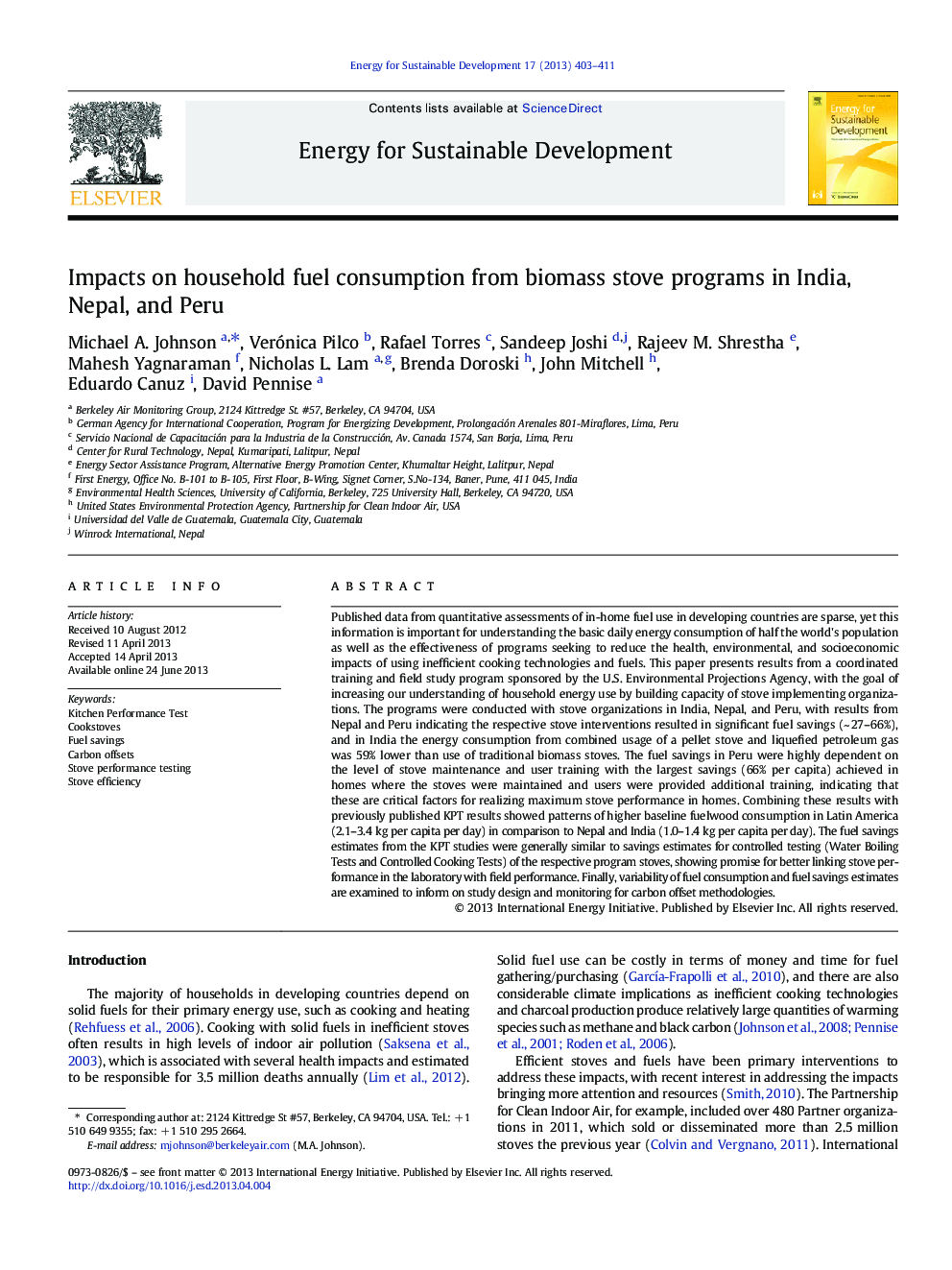| کد مقاله | کد نشریه | سال انتشار | مقاله انگلیسی | نسخه تمام متن |
|---|---|---|---|---|
| 10501931 | 945174 | 2013 | 9 صفحه PDF | دانلود رایگان |
عنوان انگلیسی مقاله ISI
Impacts on household fuel consumption from biomass stove programs in India, Nepal, and Peru
ترجمه فارسی عنوان
تأثیر مصرف سوخت خانگی از برنامه های اجاق گاز زغال سنگ در هند، نپال و پرو
دانلود مقاله + سفارش ترجمه
دانلود مقاله ISI انگلیسی
رایگان برای ایرانیان
کلمات کلیدی
موضوعات مرتبط
مهندسی و علوم پایه
مهندسی انرژی
انرژی (عمومی)
چکیده انگلیسی
Published data from quantitative assessments of in-home fuel use in developing countries are sparse, yet this information is important for understanding the basic daily energy consumption of half the world's population as well as the effectiveness of programs seeking to reduce the health, environmental, and socioeconomic impacts of using inefficient cooking technologies and fuels. This paper presents results from a coordinated training and field study program sponsored by the U.S. Environmental Projections Agency, with the goal of increasing our understanding of household energy use by building capacity of stove implementing organizations. The programs were conducted with stove organizations in India, Nepal, and Peru, with results from Nepal and Peru indicating the respective stove interventions resulted in significant fuel savings (~Â 27-66%), and in India the energy consumption from combined usage of a pellet stove and liquefied petroleum gas was 59% lower than use of traditional biomass stoves. The fuel savings in Peru were highly dependent on the level of stove maintenance and user training with the largest savings (66% per capita) achieved in homes where the stoves were maintained and users were provided additional training, indicating that these are critical factors for realizing maximum stove performance in homes. Combining these results with previously published KPT results showed patterns of higher baseline fuelwood consumption in Latin America (2.1-3.4Â kg per capita per day) in comparison to Nepal and India (1.0-1.4Â kg per capita per day). The fuel savings estimates from the KPT studies were generally similar to savings estimates for controlled testing (Water Boiling Tests and Controlled Cooking Tests) of the respective program stoves, showing promise for better linking stove performance in the laboratory with field performance. Finally, variability of fuel consumption and fuel savings estimates are examined to inform on study design and monitoring for carbon offset methodologies.
ناشر
Database: Elsevier - ScienceDirect (ساینس دایرکت)
Journal: Energy for Sustainable Development - Volume 17, Issue 5, October 2013, Pages 403-411
Journal: Energy for Sustainable Development - Volume 17, Issue 5, October 2013, Pages 403-411
نویسندگان
Michael A. Johnson, Verónica Pilco, Rafael Torres, Sandeep Joshi, Rajeev M. Shrestha, Mahesh Yagnaraman, Nicholas L. Lam, Brenda Doroski, John Mitchell, Eduardo Canuz, David Pennise,
